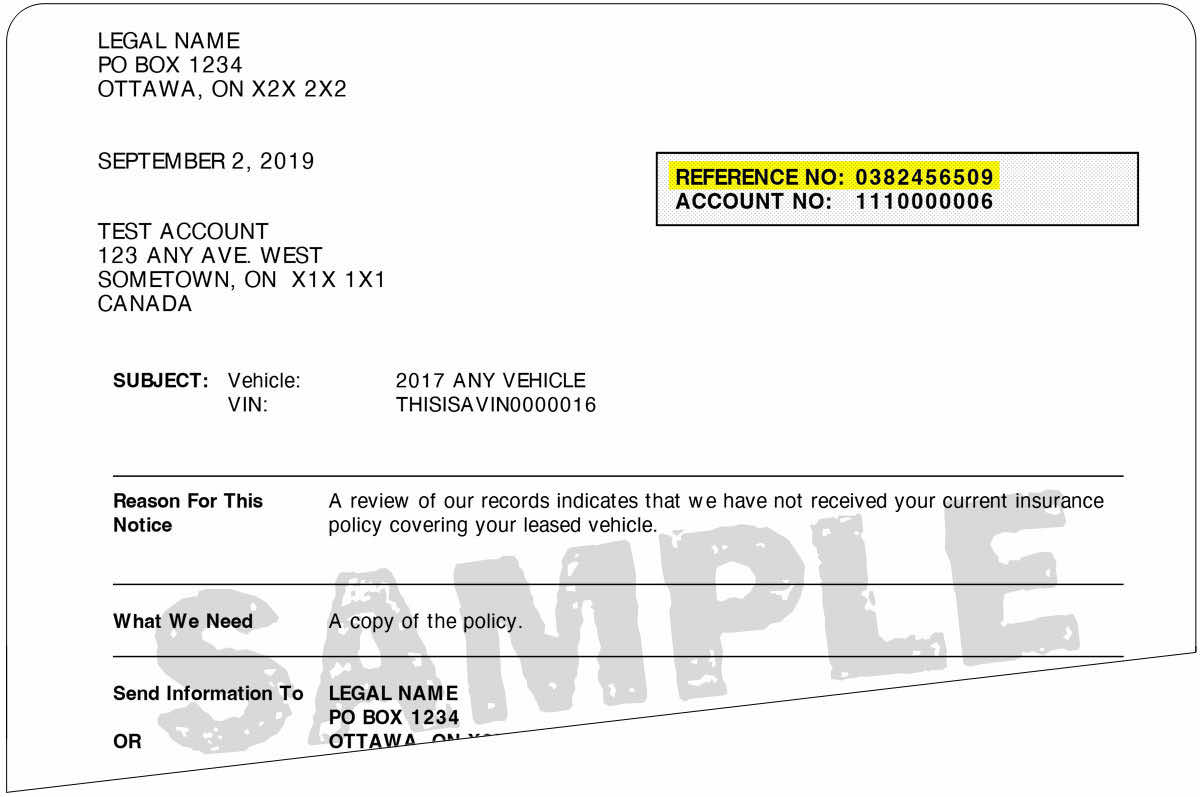Introduction
Canadian Dealer Lease Services Inc. (CDLSI) is committed to working towards full compliance with current standards of the Integrated Accessibility Standards Regulation (IASR) Policy, Regulation 191/11, under the Accessibility for Ontarians with Disabilities Act, 2005 (AODA). In doing so, we affirm our commitment to providing quality services in a manner that respects the dignity and independence of persons with disabilities.
Accessibility For Ontarians With Disabilities Act (AODA)
The AODA Multi-Year Accessibility Plan outlines the policies, achievements, and actions that CDLSI has taken and the work underway to improve opportunities for people with disabilities. The current plan covers a five-year period (2021-2026).
Statement Of Commitment
CDLSI is committed to treating all people in a way that allows them to maintain their dignity and independence. All goods and services provided by CDLSI shall follow the principles of dignity, independence, integration, and equal opportunity. We are committed to meeting the needs of people with disabilities in a timely manner and will do so by preventing and removing barriers to accessibility and meeting accessibility requirements, wherever possible under the Accessibility for Ontarians with Disabilities Act.
CDLSI is committed to develop, implement, and maintain policies that govern how the organization achieves or will achieve accessibility. To facilitate this commitment, CDLSI has established, maintained, and documented a multi-year accessibility plan. This is reviewed and updated at least once every five years to identify progress made in addressing barriers and will be posted on the CDLSI website and the internal Human Resources system.
Standards Of Accessibility Under AODA
I. General Requirements
- Accessible Emergency Information
CDLSI is committed to providing clients with publicly available emergency information, plans or public safety in an accessible way upon request.
CDLSI has provided and will continue to provide employees with disabilities with individualized emergency response information when necessary, and as soon as practically possible.
We will work alongside the affected worker to create the personalized workplace emergency plan. If they require assistance, we will seek out volunteers to help the worker in the event of an emergency. With the consent of the employee, workplace emergency response information will be given to the designated volunteers.
CDLSI has created a process for documenting issues of accessibility and recording and providing accommodation for individualized emergency response information. We will continue to review the workplace emergency response plans.
- Accessibility policies and plans
CDLSI has developed policies, procedures and practices that outline strategies to identify,
prevent and remove barriers for people with disabilities.
- Training
CDLSI shall ensure that every person who deals with members of the public or other third parties on behalf of CDLSI, and everyone who participates in the development of CDLSI’s policies, practices and procedures governing the provision of goods or services to members of the public or other third parties receive training about the provision of its goods and services to persons with disabilities.
Training will be provided to each person as soon as practical after they are assigned to applicable duties. Further training and information will be provided on an ongoing basis in connection with changes to the policies, practices and procedures governing the provision of goods or services to persons with disabilities.
CDLSI will keep and maintain a record of employee names and dates of completion for the training.
II. Customer Service Standard
CDLSI is committed to meeting the Customer Service needs of people with disabilities. We will consult with people with disabilities to determine their specific information and communication needs.
III. Information and Communications
CDLSI is committed to meeting the communication needs of people with disabilities. We will consult with people with disabilities to determine their specific information and communication needs.
i. Company Websites
CDLSI has taken steps to make all new websites and new content on those sites conform with WCAG2.0, Level A, for websites posted between January 1, 2014, and January 1, 2021.
Status: Complete
CDLSI will take steps to ensure compliance is incorporated into the Company’s website project management and that all websites and content conform with the WCAG 2.0 Level AA by January 1, 2021.
Status: Complete
CDLSI has taken the following steps to ensure existing feedback processes are accessible to people with disabilities upon request:
- Identify all existing feedback processes and accessibility barriers to these processes.
- Make available the policy and process to customers, employees and third parties for requesting accessible formats of the feedback process;
- In accordance with our Ontario Accessibility Standard for Customer Service Policy, that Policy and the related feedback process is available upon request. Upon request, those documents or the information contained in those documents will be provided to a person with a disability in a timely manner and in a format that takes the person’s disability needs into account.
Status: Complete, Ongoing
CDLSI has taken the following steps to make sure all publicly available information is made accessible upon request:
- We will respond to requests in a timely manner, and we will consult with persons with disabilities to take into account their accessibility needs appropriate to their disabilities;
- We have a process in place for persons with disabilities to be provided with information and communication in an accessible format and we will explain in writing when an accessible format is not feasible and why;
- We have informed staff who may receive requests for accessible information on how to manage requests and obtain accessible formats; and
- We have notified the public about the availability of accessible formats and communication supports via internal websites and Company bulletin boards.
Status: Ongoing
CDLSI is aware that there are issues with the chat widget and we are making the necessary corrections.
Status: Ongoing
Employment Standards
CDLSI is committed to fair and accessible employment practices that attract and retain employees with disabilities. This includes providing accessibility through all stages, practices and policies of the employment cycle.
We will take the following steps to notify the public and employees that, when requested, CDLSI will accommodate people with disabilities during the recruitment and assessment process and once people are hired:
- Let the public and employees know through our career page on our website and job postings, that we will accommodate disabilities during the recruitment and assessment process, upon request.
- If an applicant selected to participate in an assessment or selection process requests an accommodation, we will consult with them to understand and make arrangements to accommodate their needs in relation to the materials or processes to be used, where practical.
- We will notify new hires of our policies for accommodating employees with disabilities;
- We will ensure employees know of our policies used to support our employees with disabilities. Policies will be reviewed during new hire orientation and posted on the Human Resources System.
- Employees will be updated when there is a change made to existing policies.
- We will consult with individual Ontario employees with disabilities when requested, to provide accessible formats and communication supports for information that is generally available to employees in the workplace and is needed for the employees to perform their jobs.
Status: Completed
CDLSI will take the following steps to put in place a process for developing Individual Accommodation Plans (IAPs) and return-to-work plans and policies for employees who have been absent due to a disability:
- Develop an IAP and process that includes the following: The employee’s participation in the development of the IAP;
- Assessment on an individual’s basis;
- Identification of accommodations to be provided;
- Timelines for the provision of accommodations;
- CDLSI may request an evaluation by an outside medical or other expert, to assist with determining the correct accommodation, and how to achieve this,
- Steps taken to protect the privacy of the employee’s personal information;
- Frequency or applicable review dates with which the IAP will be reviewed and updated and the manner in which it will be done;
- If denied, the reasons for the denial are to be provided to the employee;
- A format that takes into account the employee’s disability needs;
- Identification of any other accommodation that is to be provided.
Status: Completed
CDLSI will take the following steps to ensure the accessibility needs of employees with disabilities are taken into account if or when using performance management systems and processes, career development and redeployment processes.
- Review internal policies and procedures to ensure they are in compliance with the IASR
- Consider the accessibility needs of employees with disabilities and, as applicable their Individualized Accommodation Plans when: Assessing performance and utilizing existing or new performance management processes, tools and forms.
- Where required and practical, documents related to performance management or career development and advancement or deployment will be made available in accessible formats upon request;
- Managing career development and advancement, including notification of the ability to provide accommodations on internal job postings; and
- Updating an individual accommodation plan, with the employee’s participation, if appropriate, in the event the employee is promoted or redeployed.
CDLSI will take steps to prevent and remove other accessibility barriers identified by customers, volunteers, third parties and employees as required and when requested.
Status: Completed




